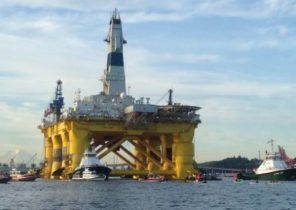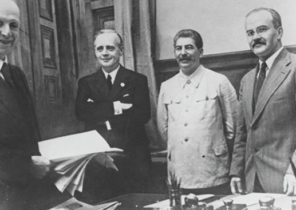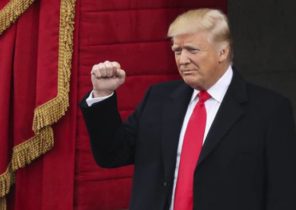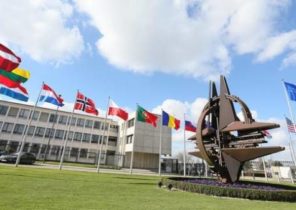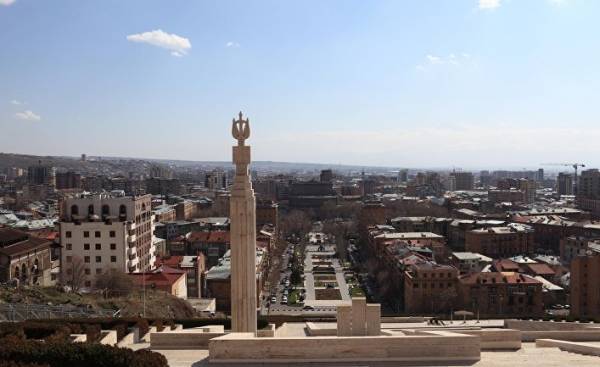
The result held on the second of April elections, the newly elected Armenian Parliament will be presented to the four political forces. If we consider the approaches of these parties and political blocs regarding the integration processes, it can be argued that the parliamentary election victory, the approach of combining the two integration vectors, or the so-called policy of “both-and”.
It is clear that the results of the parliamentary elections not only caused first and foremost by the approaches of political forces on a particular question of foreign policy, the decision of the citizens is affected by a number of objective and subjective factors. However, the future foreign policy of the country is due to political views represented in Parliament political parties. In Armenia, it now takes on special significance when you consider that the new Parliament will operate in a parliamentary form of government of the state. So that political forces will dictate the country’s foreign policy.
So, at least three of the four represented in the new Parliament political forces — Republican Party of Armenia, “Tsarukyan Block” and the Armenian Revolutionary Federation (Dashnaktsutyun) in the pre-election period gave great importance to the process of European and Eurasian integration. The government is Pro-Western bloc “EFC”(“Exit”), which in the election program emphasized that he considers erroneous, Armenia’s accession to the EAEU, but at the same time not put demands to secede from the Union, unlike the party “Free Democrats”, which is not passed in the Parliament.
The greatest number of mandates in the Parliament of Armenia will have the Republican Party of Armenia and “Block Tsarukyan”, respectively: 58 and 31. These two political forces in their election programs note the importance of combining the two integration processes, the development of the Armenian-Russian strategic partnership and, in parallel, dialogue with the EU.
In particular, the party is now in power, and that’s when this party of Armenia has joined the EEU, however, actively working with the European side and reaching the initialling of a new framework agreement EU — Armenia. In the election program of the party noted the importance of deepening the strategic relations between Armenia and Russia, their lifting to a new level. It is emphasized that “after the accession to the Eurasian economic Union Armenia has opened more opportunities for economic development of the country. In this sense, we will support the business to enable them to fully use the provided capabilities of the EEU”. At the same time, the party attaches great importance to developing relations with Europe, both at the level of Armenia-EU and bilateral level with individual countries of the European Union. “In implementing reforms in our country is of key importance to the cooperation with the European Union. We will continue to deepen cooperation with the EU, ending the process soglasovaniya new framework for our relations. We will continue to develop relations with France, Germany, Greece, other European countries, based on shared civilizational system of values”, — stated in the party program.
In the newly elected Parliament the second major force will be “Block Tsarukyan”, which is formed on the basis of the party “prosperous Armenia”, and the latter had always attached importance to cooperation both with Russia and with Europe. And now, in the program of the opposition bloc stresses the need “to deepen and develop the Armenian-Russian partnership”, attaches importance to Armenia’s participation in the Eurasian economic Union, the CIS and the CSTO. At the same time proposed “to continue their constructive participation in the processes of European integration” and it highlights the importance of signing a new framework agreement EU-Armenia.
The third force in Parliament, the Armenian Revolutionary Federation (Dashnaktsutyun), which is a traditional social democratic party, prodvide the idea of “hay DAT” (ed. — the struggle for recognition of the Armenian genocide). ARF is now in coalition with the RPA and considers Armenia’s membership in EEU the right decision. In the election program of the party is not given a preference to one of the two integration processes and noted that “Armenia should pursue an independent foreign policy based solely on national interests and long-term strategic development of the state. We are not Pro-American, Pro-Russian, Pro-European, we are Pro-Armenian and romanocentric”.
And finally, represented in the Parliament of the fourth political force — the “EFC” (“Exit”), which demonstrates itself as the most Pro-Western. “EFC” said Armenia’s participation in the EAEC, stressing the risks associated with the “sovereignty of Armenia, security, economic and political natural development, just the normalization of the problem of Artsakh (ed — Karabakh conflict),” and attaches importance to the management of these risks. At the same time, the unit proposes to start negotiations in the framework of the CSTO for “understanding Treaty obligation to ensure the safety of each other member countries”. The unit attaches importance to formation of deeper and more ambitious fields for relations with the EU.
Summarizing, we can state that two of the four represented in Parliament political forces emphasize the importance of cooperation with the EEU and the EU. One of the other two forces also supports the policy of “both-and” because it is at the moment the maximum is in the interests of Armenia. As “EFC”, in all probability, will stick to the critical position in relation to the Eurasian integration processes, pointing out weaknesses in this relationship and need to take steps to overcome them, which in turn can contribute to the improvement process.
Thus, it can be expected that adopted by Armenia in integration processes, the policy of “and-and” will not change and Armenia will continue steps to develop bilateral relations between Armenia and Russia, increase of efficiency of participation of Armenia in the EEU and the CSTO, as well as the direction of development of relations between Armenia and the EU on the basis of a framework agreement that will be signed in the near future.



